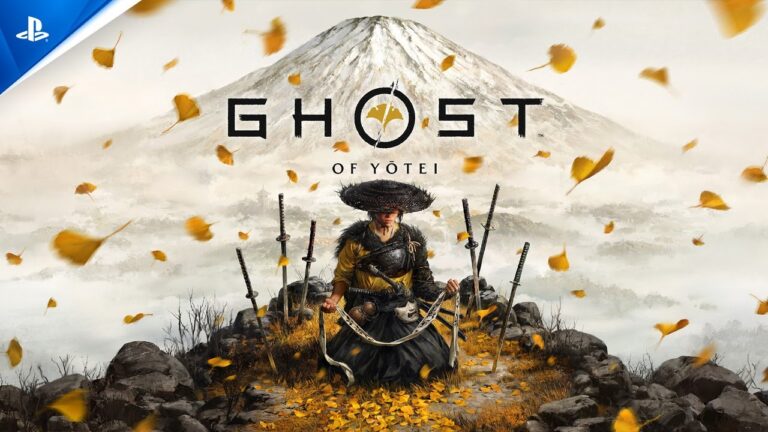Icebreaker questions are the best way to start conversations and foster a comfortable social atmosphere. They serve as a catalyst for dialogue by encouraging individuals to share personal insights and stories, thereby paving the way for more meaningful connections.
Using well-crafted icebreaker questions can help reduce tension, allow participants to get to know one another, and promote a sense of community!

With a diverse range of applications, from corporate environments to casual meetups, icebreaker questions can be tailored to fit different audiences and occasions. They can range from simple inquiries about personal preferences to thought-provoking topics that stimulate deeper discussion.
- What’s your favorite hobby?
- What book are you reading currently?
- What was your first job?
- What’s a skill you’d like to learn?
- What’s your favorite movie?
- If you could visit any country, where would you go?
- What’s your favorite food?
- Do you have any pets?
- What’s your dream job?
- What’s your favorite sport to watch or play?
- What’s a fun fact about your hometown?
- What’s your favorite season and why?
- Do you have any siblings?
- What’s your favorite childhood memory?
- What’s your favorite ice cream flavor?
- Are you a morning or night person?
- What’s your favorite holiday?
- If you could meet any historical figure, who would it be?
- Do you prefer coffee or tea?
- What’s your favorite TV show?
- What’s the last movie you watched?
- What are your hobbies?
- What languages do you speak?
- What’s your favorite type of music?
- If you could have any superpower, what would it be?
- What’s the best piece of advice you’ve ever received?
- What’s your favorite way to relax?
- Do you like to cook? What’s your best dish?
- What’s something you’re really good at?
- What’s the most interesting place you’ve visited?
- What’s your favorite animal?
- If you could live anywhere, where would it be?
- What’s something you’ve always wanted to try?
- What’s your favorite thing to do on the weekend?
- Do you have any hidden talents?
- What’s your favorite quote?
- What’s your favorite thing about your job?
- If you could be famous for one thing, what would it be?
- What’s the best gift you’ve ever received?
- What’s your favorite board game or card game?
- What’s your biggest fear?
- What’s your favorite type of weather?
- What’s something you’re proud of?
- What’s a goal you have for this year?
- What’s your favorite restaurant?
- What’s the last book you read?
- What are you passionate about?
- What’s your favorite thing to do in your free time?
- If you could learn any skill, what would it be?
- What’s your favorite color?
- What’s your favorite childhood TV show?
- If you could be any animal, what would you be?
- What’s your favorite dessert?
- What’s something that makes you unique?
- What’s a cause you care about?
- What’s your favorite type of cuisine?
- What’s the best vacation you’ve ever had?
- What’s your favorite memory from school?
- Do you prefer the beach or the mountains?
- What’s your favorite app on your phone?
- What’s something you can’t live without?
- Who’s your favorite author?
- What’s the best concert you’ve ever been to?
- What’s your favorite local spot in your city?
- If you could swap lives with someone for a day, who would it be?
- What’s the most adventurous thing you’ve done?
- What’s a talent you wish you had?
- What’s your favorite thing about yourself?
- If you could have dinner with any three people, who would they be?
- What’s your favorite childhood game?
- What’s something you wish you were better at?
- Do you prefer movies or books?
- What’s the best piece of advice you’ve been given?
- What’s your favorite way to spend a day off?
- What’s a country you’d love to visit?
- What’s your favorite plant or flower?
- What’s something you’ve learned recently?
- What’s your favorite piece of clothing you own?
- What’s a skill you’ve always wanted to learn?
- What’s your favorite way to exercise?
- What’s something you’re grateful for?
- What’s your favorite thing to bake?
- What’s the best meal you’ve ever eaten?
- What’s your favorite childhood memory?
- If you could change one thing about your past, what would it be?
- What’s your favorite hobby?
- What’s your biggest accomplishment?
- What’s your favorite type of music?
- What’s the most challenging thing you’ve ever done?
- What’s your favorite thing about your hometown?
Key Takeaways
- Icebreaker questions stimulate dialogue and build rapport in various settings.
- Effective icebreakers are tailored to audience and context for maximum impact.
- They encourage sharing and facilitate community building in groups.
Meaningful Questions
Icebreaker questions are structured prompts designed to initiate dialogue and encourage people to share information about themselves. They serve as conversational entry points that can help ease the tension in new or formal settings. These questions can range from simple inquiries about personal preferences to more imaginative prompts that provoke thoughtful responses.
Benefits
The use of icebreakers can boast numerous benefits within a group or team setting. Primarily, they foster engagement and create an environment where participants feel more comfortable to open up and communicate. Through these interactions, individuals build trust, which is a cornerstone for effective collaboration and team cohesion.
List of Benefits:
- Encourages engagement
- Builds trust among members
- Eases group tension
- Stimulates conversation
Types
Icebreakers come in various forms, each suited for different situations and objectives. Our Getting-to-know-you questions are employed for personal introductions, while team-building icebreakers aim to unite group members and strengthen bonds. Creative challenges encourage innovative thinking and fun activities drive engagement while lightening the mood.
| Type | Purpose | Example |
|---|---|---|
| Getting-to-know-you | Personal introductions | “What’s your favorite hobby?” |
| Team-building | Unite and bond members | “What skill do we all share?” |
| Creative challenges | Stimulate innovation | “If you could invent anything, what would it be?” |
| Fun activities | Lighten the mood | “Imitate your favorite movie character.” |
Creating Effective Icebreaker Questions
In crafting effective icebreaker questions, it is essential to focus on fostering engagement and breaking down barriers among participants. The right questions can set the tone for a productive session and manage expectations, but it is vital to steer clear of questions that might make participants uncomfortable.
Coming Up With Good Icebreaker Questions
When designing good icebreaker questions, you should really be aiming for simplicity and inclusivity. The best icebreaker questions often prompts a shared laugh, helping to lighten the mood. For instance, asking about a favorite childhood television show can spark a nostalgia and prompt a group laugh. It’s beneficial to ask open-ended questions, which cannot be answered with a simple ‘yes’ or ‘no.’ For example:
- What’s a book you’ve recently read that you would recommend?
- Can you share an unusual skill you have or a hobby that you’re passionate about?
These questions encourage detailed responses and can kickstart engaging conversations.
Questions to Avoid
It’s crucial to avoid weird icebreaker questions or those that are too personal, as they may set an off-putting tone and lead to discomfort. Questions about controversial topics such as politics, religion, or personal finances should be sidestepped. Instead, questions should be crafted to be relatable and non-intrusive. A way to test the appropriateness of a question is to consider if it would be comfortable to answer in a diverse group.
Setting the Right Tone
The tone of icebreaker questions can shape participants’ expectations and the overall atmosphere of the session. Funny icebreaker questions can inject humor and warmth, setting a relaxed and open tone. However, the humor should be gentle and universally accessible rather than niche or potentially offensive. Questions should ideally relate to shared human experiences, inviting storytelling and shared laughter, while keeping the environment professional and considerate of different backgrounds. An example might be:
- If you could have an unlimited supply of one thing for the rest of your life, what would it be?
The question is light-hearted yet open for creative responses, setting a tone that is both fun and respectful.
Icebreakers for Different Settings
Choosing the right icebreaker questions can facilitate better engagement and connection in various environments. These prompts are tailored to suit professional settings, adult gatherings, virtual meetings, and team-building initiatives.
Icebreakers for Work
In the workplace, icebreaker questions should foster a sense of community and encourage open communication. A thoughtful question might be, “What skill would you like to master, and how do you think it would aid your role here?” This focuses on both personal growth and job relevance. For a quick reference, here’s a concise list:
- Interesting Fact: Share something unique about yourself.
- Career Aspiration: Discuss a professional goal.
Enhance team rapport with engaging icebreaker questions that are work-appropriate and inspire collaboration.
Icebreakers for Adults
Social situations among adults often benefit from icebreakers that spark meaningful conversation. Consider asking, “What’s a book or movie that changed your perspective, and why?” This allows for a wide range of responses and depth. Bullet points to remember include:
- Shared Experiences: Talk about a recent significant event.
- Bucket List: Mention a dream and why it’s important to you.
For a variety of adult-focused questions, explore The Muse’s icebreaker suggestions tailored for more mature audiences.
Virtual Meeting Icebreakers
As remote work becomes increasingly common, virtual meeting icebreakers are vital to simulate the watercooler conversations of office life. “What’s your work-from-home setup like?” can kickstart dialogue on a shared remote experience. Keep these considerations in mind:
- Backdrops and Environments: Discuss your video call background.
- Personal Achievements: Share a recent win or success story.
For more virtual icebreakers, refer to Slido’s extensive list, which can be used to promote connectivity across digital landscapes.
Team Building Activities
Team building activities often go hand-in-hand with icebreaker questions to create a supportive and cohesive group dynamic. One could ask, “Which team success are you most proud of and why?” highlighting the collaborative efforts. Here’s a brief format to outline activities:
- Problem-solving Tasks: Challenges that require teamwork and creativity.
- Group Discussions: Facilitate open dialogue around shared interests.
For more structured team-building exercises, consider insights from Mural’s article on the topic.
Specific Types of Icebreaker Questions
Icebreaker questions come in various forms tailored to initiate conversations, break the ice in a fun way, and facilitate deeper connections. Below are distinct types of icebreakers along with examples tailored to suit different scenarios or group dynamics.
Funny and Fun Icebreakers
Fun icebreaker questions instantly lighten the mood and invite a playful exchange. They can include queries such as “If animals could talk, which would be the funniest?” or “Would you rather fight one horse-sized duck or a hundred duck-sized horses?” These questions foster a relaxed environment and encourage humorous responses.
‘If You Could’ Questions
This category stimulates the imagination and provides insight into preferences and desires. An example is, “If you could have dinner with any historical figure, who would it be and why?” These questions allow participants to share aspirations and hypothetical choices, revealing personal interests and values.
‘This or That’ Questions
Quick and straightforward; ‘This or That’ questions require participants to choose between two options. They are a great way to start rapid-fire rounds and keep the energy high. “Cats or dogs?” or “Beach vacation or mountain retreat?” are typical examples.
Deep and Meaningful Icebreakers
When the group is ready to move past superficial topics, deep and meaningful icebreakers offer a path to more significant dialogue. Questions might include “What’s a challenge you’ve overcome that you’re most proud of?” These prompts can lead to sharing of personal triumphs and struggles, fostering a sense of intimacy and understanding.
Personal and Getting-To-Know-You Questions
Getting-to-know-you questions help to peel back some layers to better understand someone on a more personal level. Asking “What’s something not many people know about you?” often reveals hidden talents or unique experiences. These questions aim to construct a foundational understanding of an individual outside of a generic introduction.
Icebreaker Strategies for Specific Audiences
Selecting effective icebreaker questions is crucial for engaging specific groups. The right questions can spark conversation, encourage participation, and set the tone for the event.
Icebreakers for Kids
When working with children, icebreaker questions should be simple and related to their interests like favorite cartoons or superheroes. One might ask, “If you could be any animal, which would you be and why?” This encourages creativity and sharing personal interests.
Icebreakers for College Students
Icebreakers for college students should facilitate connection and may relate to their experiences or aspirations. For example, “What’s the most exciting thing you learned in your classes this semester?” allows students to share educational interests and common grounds.
Icebreakers for Team Meetings
For team meetings, the best icebreaker questions often focus on team-building and uncovering hidden talents. Enquire about non-work-related skills with a question like, “What’s a hobby you’re passionate about that your coworkers might not know?” This can reveal diverse interests and promote a group setting where everyone feels valued for more than just their professional skills.
Icebreakers and Special Occasions
Icebreaker questions are a valuable tool for fostering conversation during special events. They can be tailored to any holiday to add a festive touch and help guests start engaging conversations.
Holiday Icebreaker Questions
For general holiday gatherings, icebreaker questions should resonate with the theme of the occasion.
- Examples for New Year’s events:
- What’s one thing you learned this past year that you’re grateful for?
- Which new skill do you plan to master this year?
Questions such as these not only break the ice but also encourage guests to reflect on personal growth and future aspirations.
- Suggestions for Thanksgiving dinners:
- What’s the most unusual dish you’ve had at a Thanksgiving meal?
- Can you share a family tradition that is unique to your Thanksgiving celebration?
These prompts help individuals share personal anecdotes and culturally diverse practices that enrich the experience for all attendees.
Christmas Icebreaker Questions
Christmas gatherings often involve a mix of familiar faces and new acquaintances. Here are some tailored questions to this festive time of year:
- For family events:
- What is your most memorable Christmas gift from childhood?
- Can you recount a funny holiday mishap that’s become a family legend?
- For office Christmas parties:
- If you could be gifted an experience this Christmas, what would it be?
- What’s your favorite holiday movie that you have to watch every year?
Such questions not only stir up nostalgic feelings but also foster a sense of community and shared joy typical of the Christmas season.
Creative Icebreaker Ideas
Incorporating various themes, technologies, and cultural elements can transform simple get-to-know-you questions into memorable conversation starters. This section explores innovative icebreakers that can be tailored to a variety of group dynamics and interests.
Random Icebreaker Generator
A random icebreaker generator effectively streamlines the process of finding the perfect question to kick off a meeting or event. By simply clicking a button, one can access a vast array of questions that range from light-hearted to thought-provoking, ensuring that every session begins on a high note.
Cultural and Artistic Icebreakers
Incorporating questions about art and culture can unveil the diverse backgrounds and tastes within a group. For instance, asking participants about their favorite local artists or cultural events can foster an appreciation for the rich tapestry of human creativity and societal diversity.
- Favorite Local Artist:
- Who is an artist from your region that you admire, and why?
- Cultural Events:
- Share an unforgettable cultural event you’ve attended recently.
Music and Movie Themed Icebreakers
Focusing on music and movies allows individuals to bond over shared interests and can reveal much about their personalities. Whether it’s a classic film or a contemporary hit, these questions engage participants in a light-hearted discussion about the soundtracks and stories that inspire them.
- Classic Films:
- Which classic film’s storyline resonates with you the most?
- Contemporary Hits:
- What recent movie’s soundtrack has been on repeat for you?
Icebreakers in a Modern Context
Icebreakers have evolved, seamlessly integrating with the digital age, reflecting contemporary cultures and technological trends. They facilitate not just face-to-face engagement but also digital interactions in an era dominated by screens and online communication.
Technology and Social Media Icebreakers
Incorporating technology into icebreakers can effectively bridge the gap between strangers. For example, asking about favorite apps or platforms can quickly reveal common interests or lead to exciting discussions about the fast-paced tech landscape. A well-crafted question like, “Which app has unexpectedly impacted your life?” encourages participants to share personal stories related to technology. Moreover, inquiring about the most recent photo they shared on social media could prompt endearing anecdotes or intriguing insights into their daily lives.
Trending Topics and News Icebreakers
Given the rapid spread of information we have today, using current events as icebreakers can stimulate informed debates and offer a glimpse into one’s awareness and opinions on world affairs. An icebreaker could be as straightforward as, “What recent news story has caught your attention, and why?” This type of question not only breaks the ice but also encourages individuals to think critically and engage in meaningful dialogue about recent developments, whether they’re global news events or more localized stories.
Experiential Icebreakers

Experiential icebreakers are a powerful tool to encourage participants to share past experiences that are significant to them. The topics range from adventures and travel to aspirations and career ambitions.
Adventure and Travel Icebreakers
Engaging others in conversations about their travels can reveal much about their preferences for exploration and adventure.
- Have you ever solo traveled? This question can unravel stories of self-discovery and independence.
- What is the most unusual place you have visited? Responses often include unique cultural experiences or unexpected encounters.
Bucket List and Dream Job Icebreakers
By asking about someone’s bucket list or dream job, individuals often share deeper personal goals and passions.
- What’s at the top of your bucket list?
- Skydiving in Dubai? A common goal for thrill-seekers.
- Seeing the Northern Lights? A bucket list favorite for many.
- If you could choose any job, regardless of money, what would it be?
- Answers might range from wildlife photographer to CEO of a tech company, providing insight into one’s ultimate career ambitions.
Light-hearted and Fun Topics
Incorporating light-hearted and fun topics into conversations can instantly change the dynamics of a gathering. These questions create an inviting atmosphere and help people connect on a personal level.
Food and Drink Favorites
Favorite Place
Everyone has a favorite place to enjoy their preferred meals and beverages. A question like, “What’s your go-to brunch spot in the city?” can uncover shared interests in local cuisine and initiate lively discussions about food experiences.
- Coffee
- Americano or Espresso? Asking about someone’s coffee choice can lead to stories about daily routines or favorite coffee shops.
- Breakfast Food
- Pancakes or Waffles? This can reveal a person’s breakfast food inclination and open up discussions about cooking skills or the quest for the perfect syrup.
Pop Culture and Entertainment
Favorite TV Show
Television shows often reflect cultural trends and personal tastes. A question like, “What is the one TV show you could watch on repeat?” provides insight into a person’s entertainment preferences.
- Pop Culture Trivia
- Which song was a hit of the summer last year? Trivia can be a fun way to test each other’s knowledge on pop culture.
- Entertainment Preferences
- Superhero movies or Indie films? These preferences can spark debates and lead to planning group movie nights or viewing parties.
Team Dynamics and Collaboration
Effective team dynamics and collaboration are the lifeblood of any successful team. Icebreaker questions encourage deeper connections and enhance collaboration by breaking down barriers and fostering a supportive environment.
Team Bonding through Questions
Team bonding nurtures trust and understanding among members, which are critical for a cohesive group. Questions that reveal individual’s strengths and preferences contribute to recognizing each member’s role in the team’s success. For example, asking about past experiences can highlight unique skills, while questions about interests can pinpoint shared hobbies that can act as bonding points.
Collaboration-Enhancing Icebreakers
For collaboration to be effective, teams need to communicate seamlessly and align their goals. Icebreakers focused on work preferences and communication styles identify how different team members can work together harmoniously. Asking about specific scenarios or hypothetical questions encourages team members to think collectively and can reveal insights into how the team can tackle challenges together.
Personal Development Icebreakers
Personal development icebreakers are questions designed to explore an individual’s goals, aspirations, and areas for personal growth. These questions encourage reflective thinking and can reveal much about a person’s motivations and self-improvement journey.
Goals and Ambitions
One’s goals and ambitions often serve as a roadmap to their desired future. Icebreakers in this category might include:
- What are your key goals for this year? This question pushes individuals to articulate their short-term priorities.
- Can you share the best piece of advice you’ve received that has significantly impacted your goals? Insights from others often influence one’s path to achieving ambitions.
Skills and Self-Improvement
Individuals continuously develop skills and seek self-improvement to remain competitive and fulfilled. Relevant questions here include:
- Which skill are you currently focused on improving, and why? This highlights the person’s active engagement in personal growth.
- What self-improvement books or resources have you found valuable recently? It’s an opportunity for individuals to share impactful resources and practices.
Leisure and Lifestyle Icebreakers

When it comes to breaking the ice, discussing leisure and lifestyle choices offers a wellspring of topics that can foster connection and lighthearted conversation. This section zeroes in on common shared experiences in family dynamics and the multifaceted world of hobbies that define personal time.
Pets and Family Topics
- Family Gatherings: One might ask about another’s favorite family tradition to gain insight into familial culture and heritage.
- Pets as Family Members: Conversations can open up by inquiring about the type of pets one has, or sharing amusing anecdotes about their furry companions.
Hobbies and Free Time Activities
- Creative Pursuits: It’s intriguing to discover if a person has a penchant for painting, writing, or other creative hobbies, shedding light on their artistic side.
- Guilty Pleasures: A touch of fun is added when individuals share their guilty pleasure TV shows, foods, or activities, offering a glimpse into their relaxation preferences.
Humorous and Whimsical Icebreaker Questions
Engaging in light-hearted conversations can quickly bridge the gap between strangers. This section serves up a platter of creative and amusing icebreaker questions perfect for orchestrating lively discussions and a few chuckles along the way.
Zombie Apocalypse and Time-Travel Scenarios
Scenario-based inquiries provide a thrilling twist to conventional icebreaker strategies. They ignite the imagination and prompt individuals to ponder their survival skills and historical curiosities in a playful manner.
- Surviving a Zombie Apocalypse: Inquiring about a participant’s role during a zombie apocalypse offers a glimpse into their problem-solving abilities and sense of humor. Questions such as, “If you could choose any three items from this room during a zombie outbreak, what would they be?” encourage creative and strategic thinking.
- Time-Travel Adventures: Consider asking, “If you had a time machine, which era would you visit and why?” This question doesn’t just tap into someone’s historical interests; it also sheds light on their values and aspirations.
Weird and Wacky Questions
Going beyond the ordinary often unravels the most intriguing facets of an individual’s character. Weird and wacky questions can serve as an excellent tool for loosening up a group and facilitating a comfortable and jovial dialogue.
- Strange Eating Habits: Pose questions like, “What’s the oddest food you’ve enjoyed for breakfast that isn’t typically morning fare?” Such queries reveal quirks and invite shared laughter.
- Bizarre Fears: Dive into the realm of the peculiar by asking about irrational childhood fears. “Which clown character from a movie or book stormed into your nightmares as a child?” This question can prompt personal stories that bond participants over common ground.
Leveraging these inventive icebreaker questions can transform a room of reserved individuals into a collective bursting with lively banter and unexpected comradery.
Practical Applications of Icebreakers
Icebreakers can be potent tools for enhancing team productivity and fostering a healthier work-life balance. When utilized effectively, these simple queries can facilitate smoother meetings and reduce workplace stress.
Productivity and Scheduling
In the context of productivity, incorporating icebreakers into meetings can transition participants from disparate tasks to a focused group mindset. This is particularly beneficial in setting the tone for collaborative efforts. For instance, Slido’s compilation of icebreaker questions suggests well-chosen prompts can quickly align individuals toward the meeting’s objectives. When team members are working from home, the right question can serve as a virtual equivalent of walking into a meeting room, helping remote employees switch gears and prepare for the discussion ahead.
- Icebreakers that inspire sharing of personal time management hacks can indirectly promote better scheduling habits among the team.
- Prompting attendees to reveal their most productive time of day can lead to a schedule that aligns collective energy peaks, optimizing performance.
Stress Reduction and Work-Life Balance
Icebreakers also play a critical role in mitigating stress by introducing a moment of levity and personal connection. According to Mural’s icebreaker insights, a well-timed and thoughtful question can ease tension and allow individuals to feel more relaxed at the outset of an otherwise demanding collaborative session. This is particularly important as work-from-home arrangements can sometimes blur the lines between professional and personal lives, leading to increased stress levels.
- Starting with a humorous or intriguing question can create a buffer zone, easing the shift from private life to work mode.
- Personalized icebreaker questions relating to hobbies or relaxation techniques can encourage employees to share stress reduction strategies and maintain a healthy work-life balance.
Building Long-Term Engagement
Effective team building conduces to lasting engagement among team members. Incorporating strategic icebreaker questions can foster an environment of trust and growth, essential for sustaining long-term engagement.
Fostering Long-Term Trust and Camaraderie
Trust is the cornerstone of any successful team. Icebreaker questions that encourage sharing personal victories or challenges can solidify trust within a team. For example, asking employees to recount a moment when they overcame a difficult challenge at work can showcase resilience and foster a sense of mutual respect. Engagement is amplified when team members feel understood and valued not just for their work but also for their contribution to the team’s social fabric.
Continued Team Growth and Dynamics
For long-term engagement, it is imperative that team building activities evolve with the team. This might involve periodically introducing new icebreaker questions that reflect the current dynamics and aspirations of the group. Addressing topics such as future goals or past achievements can encourage ongoing personal and professional development. Questions that probe into how team roles might change in the future can prepare teams for growth and change, keeping the team dynamics fresh and adaptive.
Frequently Asked Questions
Icebreaker questions can serve as powerful tools in creating engaging conversations, helping people to connect and learn more about each other in various settings. They are not only useful in social and work environments but also provide insight into personalities and preferences.
What’s something you’ve always wanted to try but haven’t had the chance to yet?
Everyone harbors some aspirations or dreams that they’ve yet to fulfill. This question reveals hidden desires and shows a person’s adventurous or aspirational side.
If you could have dinner with any historical figure, who would it be and why?
A glimpse into someone’s values and interests can be seen by whom they choose as a historical dinner guest, shedding light on who they admire and why that figure’s life or achievements resonate with them.
What’s a hobby you’ve picked up during the past year and how has it affected your life?
Discussing recent hobbies can showcase adaptability and how someone seeks personal growth or relaxation. It’s also a testament to how they manage work-life balance.
Can you share a memorable moment from your childhood that shaped who you are today?
Childhood experiences often have lasting impacts. This question delves into past events that have contributed significantly to one’s character development or life choices.
What would be the title of your autobiography and why?
An autobiography’s title is a creative reflection of self-perception and the narrative one sees in their own life. It indicates their sense of identity and highlight moments they deem important.
If you could instantly gain expertise in one skill, what would it be and how would you use it?
Uncovering aspirations for mastery in a skill highlights ambitions and potential aspirations, providing perspective on where they see themselves excelling or contributing to the world.












